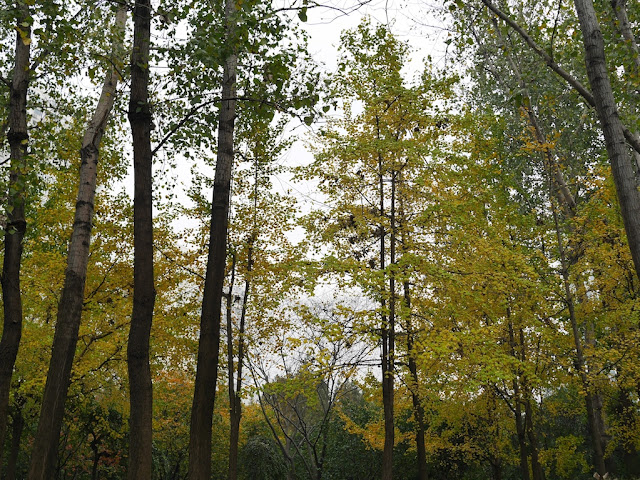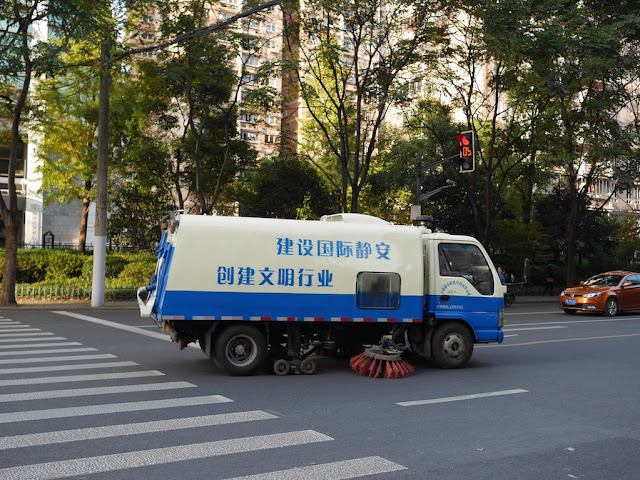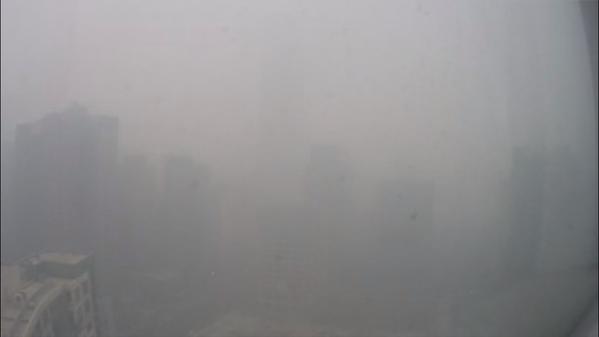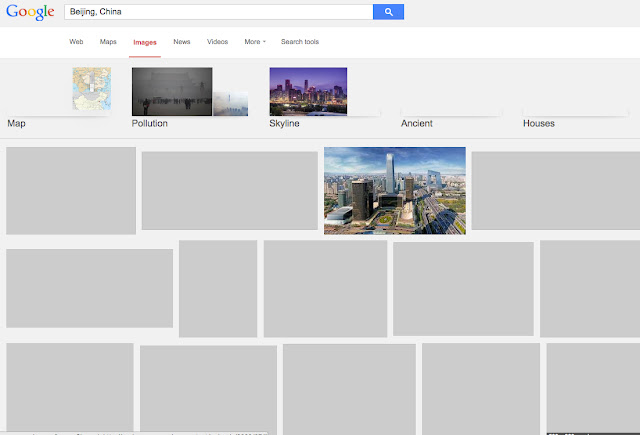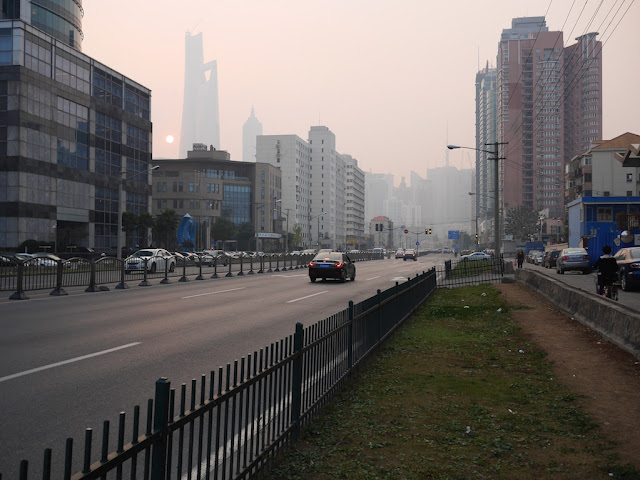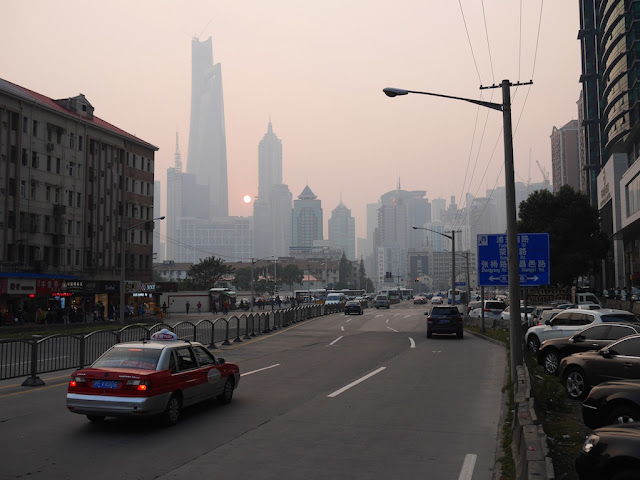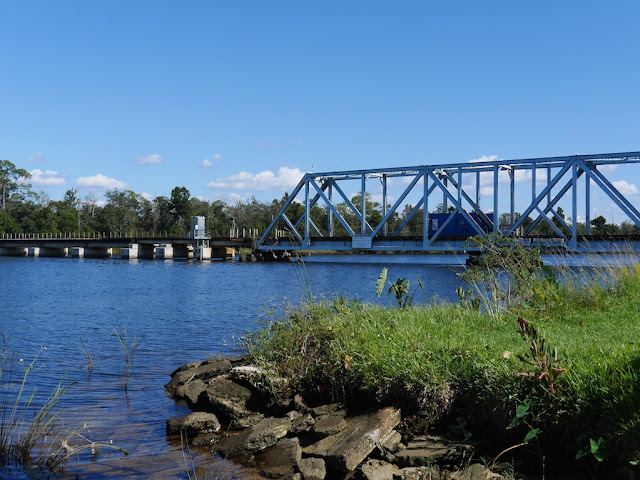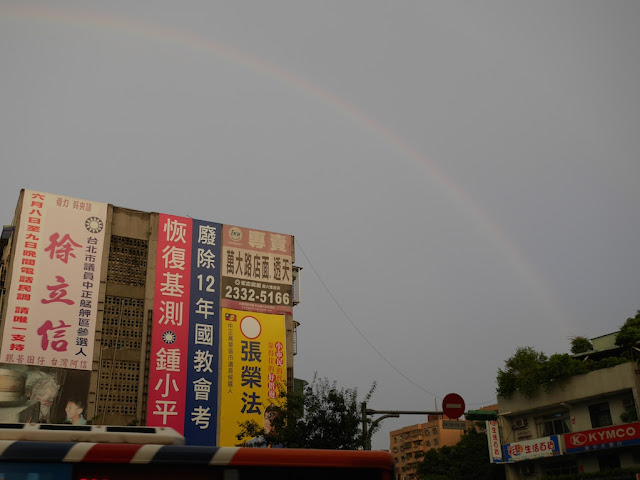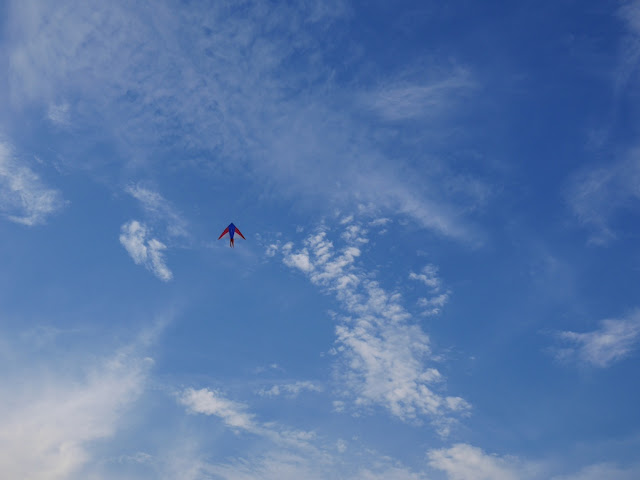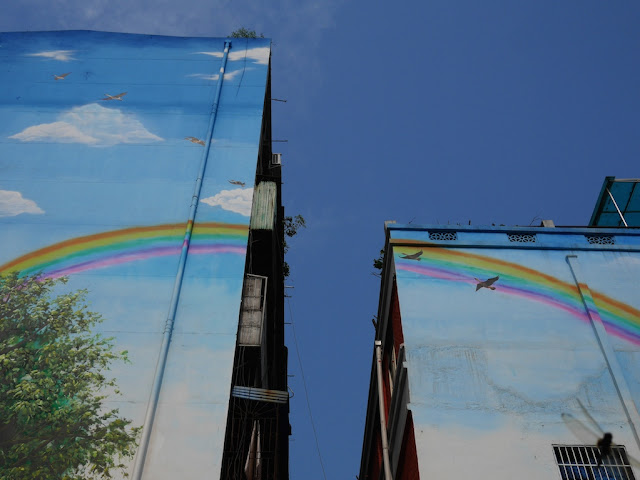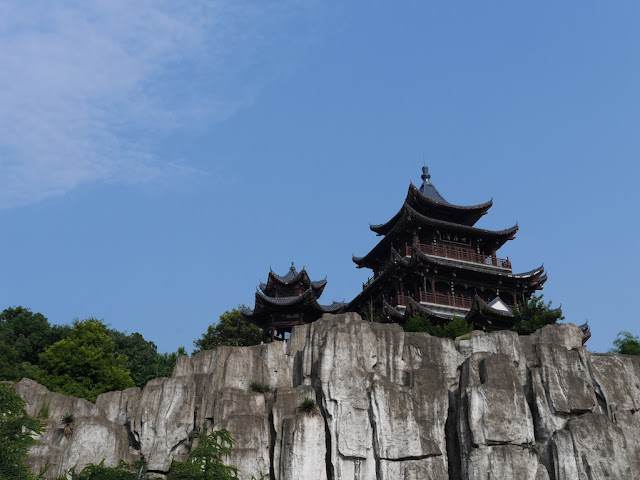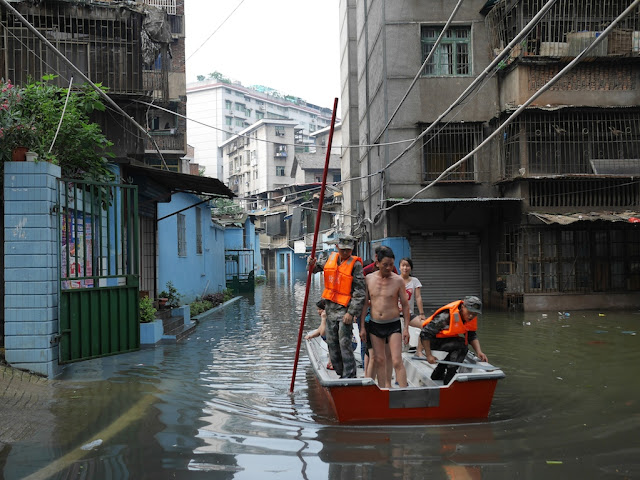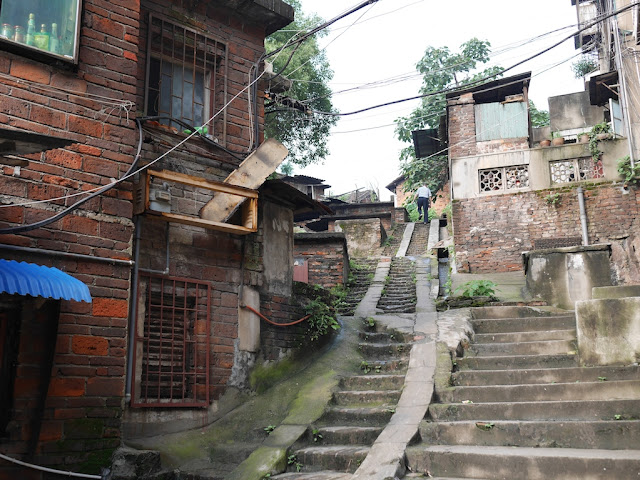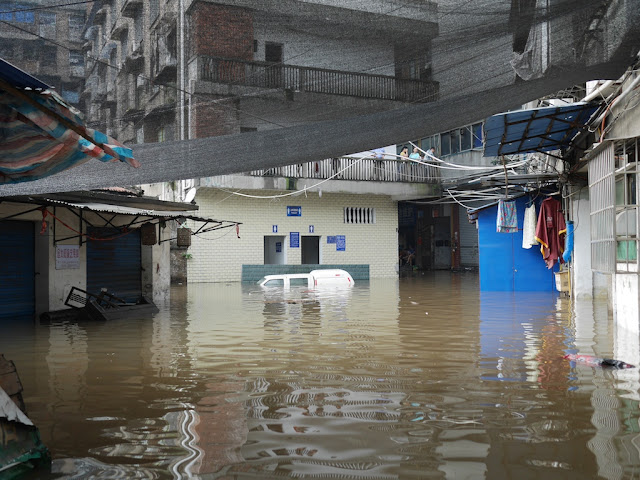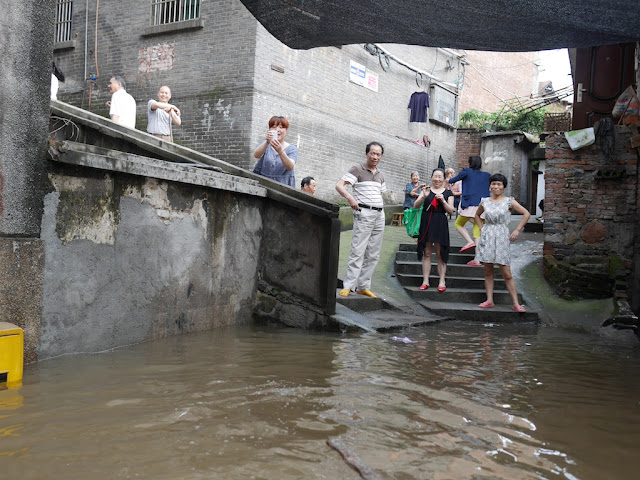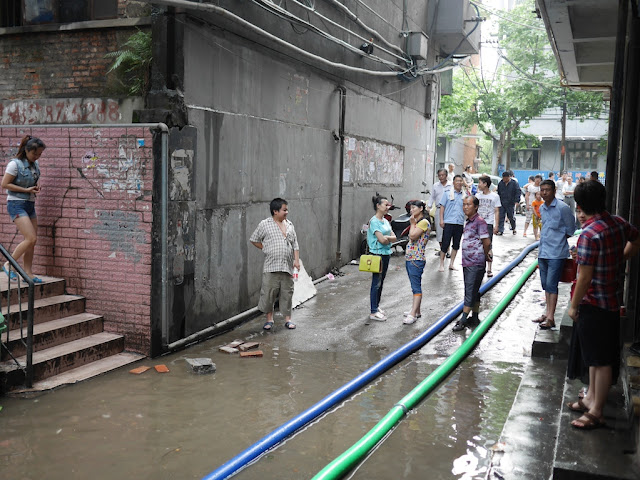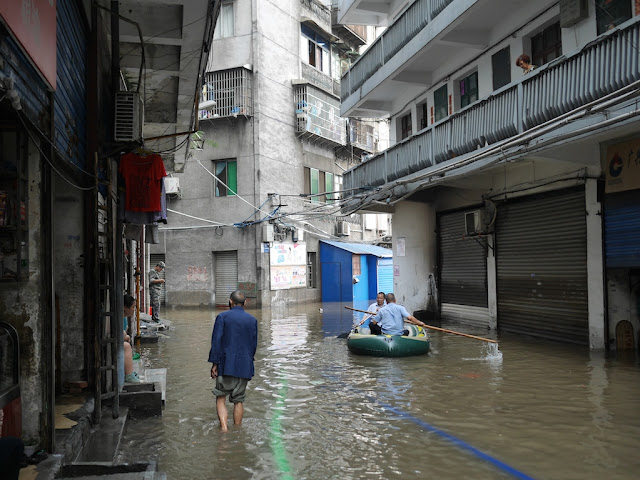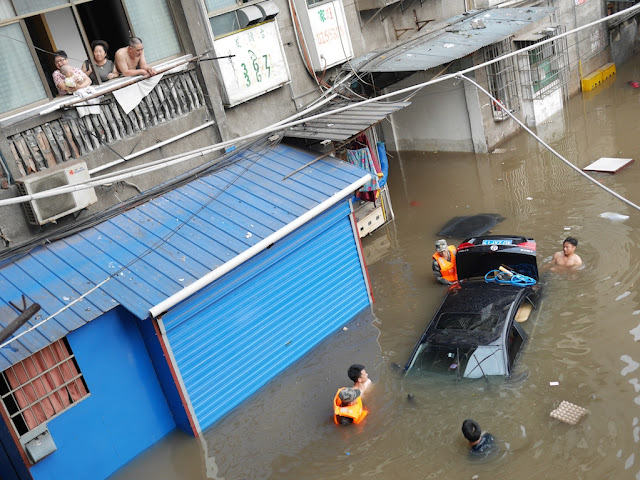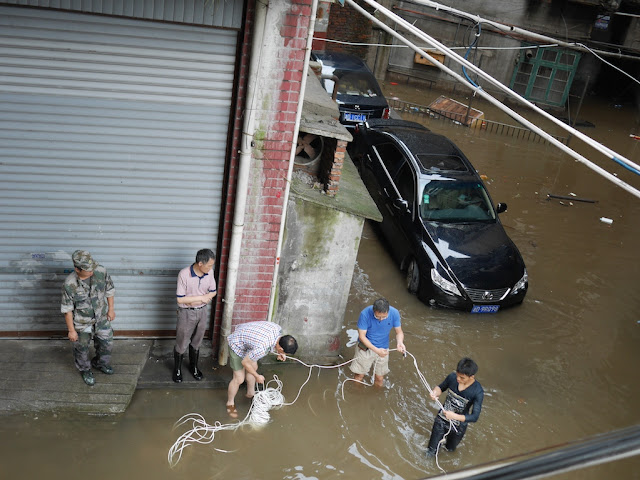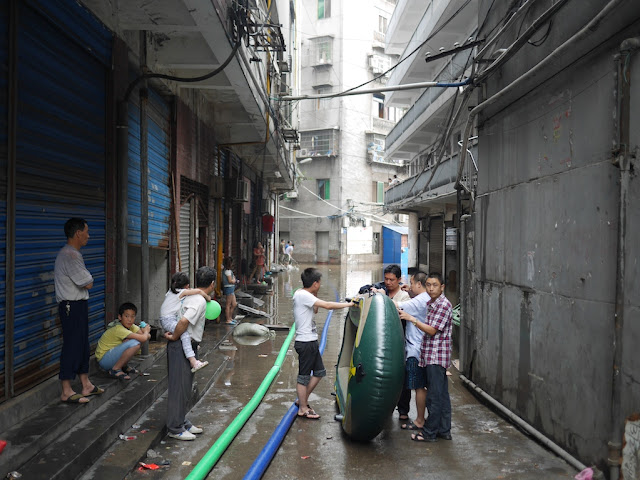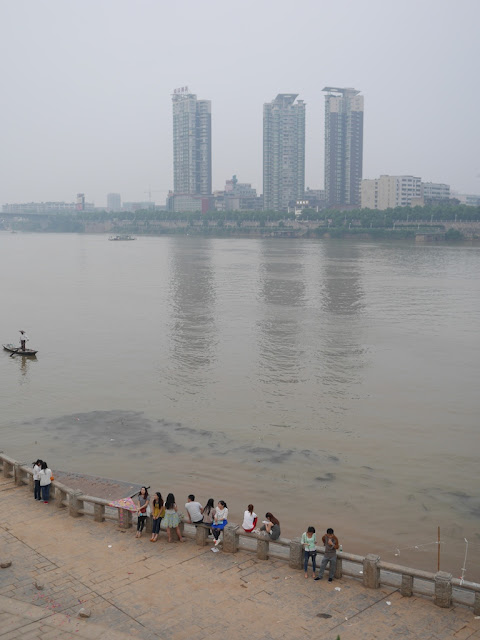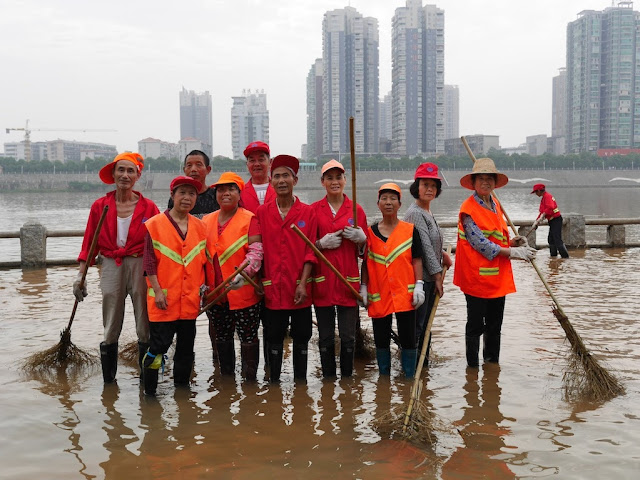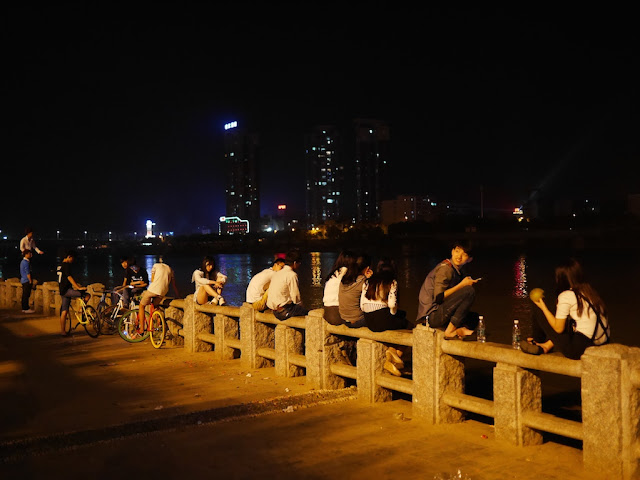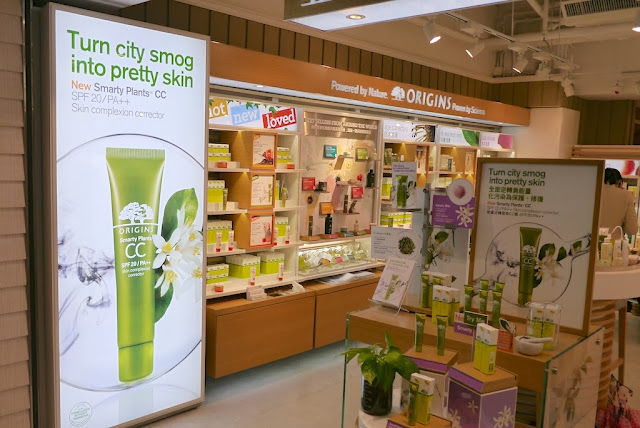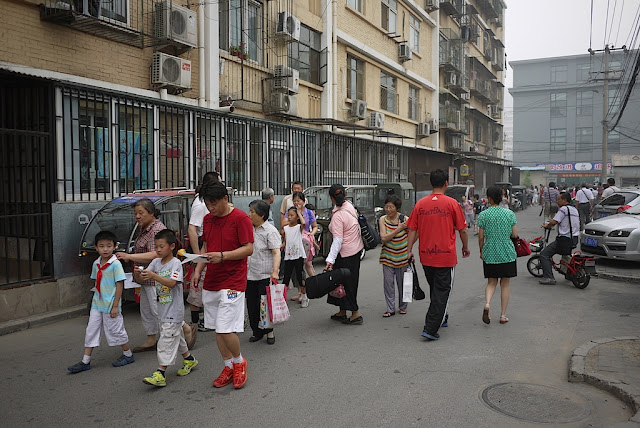Last night the rain was especially heavy in Hengyang, Hunan province. When I set out this afternoon, most seemed relatively normal in the central urban area where I have spent most of my time, like last week when the
Xiang River flooded a pedestrian area.
However, while walking down a street not far from
Yueping Park, I looked down an alley I had not passed before named Yudetang (余德堂) and saw something rather unexpected.
During a confused split second I wondered whether I was looking at a canal, but I quickly realized that an area in a hilly section of Hengyang had flooded. The water came up to the waist of one man of average height who jumped into the water further down the alley. While I was there, another man said to me that surely the U.S. would not have problems like this. I told him that sometimes the U.S. experiences flooding that wouldn't look very different.
I soon saw the arrival of a boat with residents guided by two People's Liberation Army soldiers wearing their urban camouflage uniforms.
I then headed back to the main road and soon found nearby an intriguing route up a hill.
After reaching the top and going down a different set of stairs, I soon found myself facing another flooded area.
A group of people gathered near the edge of the flood appeared bewildered to see me, and we were soon having a friendly conversation. They said the area has flooded previously but never before had the water risen so high.
Soon, a raft passed nearby, and after a bubble of activity several people hailed it. To my surprise it was not for themselves. Instead, they excitedly told me I could board it. I had no need for a boat ride and was looking forward to exploring another set of stairs, but a woman encouraged me to get on the boat and told me I could take more photos. I then noticed that although there were no soldiers aboard, one of the rowers was a chengguan, a
law enforcement officer for urban administrative regulations and the "
least-loved public official" in China. I really didn't want to be getting in the way, but the chengguan insisted, in a friendly manner, that I come aboard.
So I departed my new friends. Several of them looked rather amused.
During the middle of the trip, I saw a group of men trying to move a car.
And after a 5 minute journey, I disembarked at an area with its own set of onlookers.
My thanking the chengguan caused a bit of laughter. As the chenguan rowed away, I pondered the fact that the end of my raft ride had been filmed by a news crew from Hunan TV.
I then climbed some stairs to a long balcony and backtracked a bit. Progress of some sort had been made with the car in deeper waters although debate erupted over what to do next.
There were activities elsewhere, although I didn't stick around long enough to figure out what they had planned.
For others, there was nothing to do but watch.
Eventually, I decided to depart, and I took one last look back.
As I approached a main street, I saw a street sign indicating I was now at the opposite end of the same alley where I first noticed the flooding.
A
local news report (in Chinese) confirms what the residents told me--this is not the area's first flooding.
Although the boats are somewhat fitting in an ironic manner, this certainly was not how I expected to spend the
Dragon Boat Festival today in China. I am sure others felt the same. It was a somewhat surreal experience for me at times, but mostly I felt bad for the residents who have to deal with the flooding. Hopefully next year's holiday is more festive for them and all boats are far from their street.


